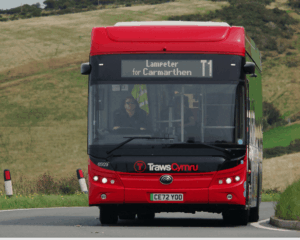Proposed road tolls are part of the new transport strategy for Wales. Welsh Government has published its National Transport Delivery Plan 2022 – 2027.
This sets out the ambition to move more people away from using their cars by making public transport more effective and affordable as well as reducing trips by digital rollouts and bringing services and facilities closer to where people live, reports North Wales Live.
To achieve this Welsh Government has included the development of a strategy for “fair road user charging”.
This comes as electric vehicles use increases around the world. Governments are looking at how they can make up for the lost revenue from taxation on petrol and diesel.
This year the UK Parliament’s Transport committee said UK Government had to act urgently to bring in a national road pricing scheme to fund transport infrastructure. It said there was “no viable alternative”. Welsh Government has now included road charging as part of its future potential measures.
Speaking about the plan, Lee Waters, Deputy Minister for Climate Change, said: “Transport is the laggard on the path to healing our damaged climate, because reducing emissions from transport requires fundamental change that reaches deep into society and the lives of individuals. To do better we have to act together, right across society, with governments, communities and businesses working collaboratively to change how we travel.
“Our approach is threefold: reducing the need to travel in the first place by bringing jobs, shops, services and facilities close to where people live; making the sustainable transport modes of walking, cycling and public transport a natural attractive choice; and encouraging everyone to make those sustainable transport choices.”
On road pricing the report says: “Delivering against our targets requires a change in the way we travel. We need fewer cars on our roads, and more people using public transport, walking or cycling. An emerging area which has the potential to deliver modal shift, address carbon targets and support investment in sustainable transport is demand management schemes such as road user charging.
“The UK Secretary of State for Transport retains powers to implement universal road charging and to receive any revenue, but through the Transport Act 2000 Welsh Ministers can provide powers to local authorities to implement local schemes.”
They said there would be a carrot and stick approach. It added: “We will explore a ‘benefits and charges packages’ approach to introducing any new schemes, looking at ways to improve services before charges or introduce lower fares when charging starts.
“The Wales Transport Strategy includes a commitment to develop a national road user charging framework. Further work will be undertaken to develop a fair and equitable road user charging framework, including how local authorities can borrow against these future revenue streams to fund transport improvements; and also consider other alternatives such as work place car parking levies and road space reallocation.”























